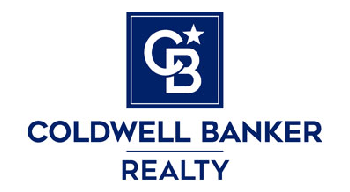
We all make mistakes, if we’re lucky (and smart) we learn from our missteps and move on, a little older and a little wiser. Unfortunately when you’re selling a home simple mistakes can cost you thousands of dollars. Here are six common mistakes I see every day.
Sentimental Feelings
You are attached to your home, it contains history, memories good times. Buyers have no such attachments, yes they may “fall in love” with a house but unless they are are swimming in money (and so few buyers are) they will base their offer entirely on the real world. They will rely on mundane things like the neighborhood comps and the size and state of your house. This is why hiring a good realtor is essential. I can look at your house with a cold eye and guide you to a realistic asking price, or suggest improvements that will increase it’s value.
Not preparing early enough
When it comes to selling a home people always underestimate two things:
- How long it will take to prep the home for sale and
- How long it will take to actually sell.

Meeting with agents, establishing list price, figuring out staging all take time. If you decide to make improvements then dealing with designers and contractors adds even more time to the process.
Give yourself several months of prep time before you actually plan on putting your home on the market. If you are not preparing early, you are already late. Your realtor will give you a realistic estimate of how long these stages will take.
How long will it take to sell my house
All statistics are based on National Averages
- List and show The average length of time an American house sits on the market is 68 days. If we assume a 30 day close then the national average is 38 days.
- Accept an offer If you receive an offer it’s good idea (and common courtesy) To reply promptly. Somewhere between 24 and 72 hours is the norm
- Home inspection Will depend on the contract. Typically, the buyer is given between 5 and 10 days after acceptance to complete an inspection. The inspection itself takes a couple of hours, and then it will take a day or two for the inspector to present their report.
- Counteroffer After home inspection: Based on the the home inspection, it’s not unusual for buyers to come back with an adjusted offer. This is also the time buyers will request repairs to be made on issues found in the inspection.
- Closing At this point the average time to close on a house is 30 days. This gives everybody involved enough time to complete all the necessary paperwork.
Your home can become outdated
Real estate agents may play up the latest trends in home design as they show you different places but styles change. Granite countertops used to be the hot thing for kitchens. Now, quartz is in. And remember the free-standing Roman bathtub that was a must-have feature? No one asks for them now.
Take a look at some ways you can get your home ready to sell
Shop for a home you truly want. Don’t purchase a home because it has a certain feature and will be “good for resale”. If you don’t want or care about a feature, most likely neither will the next person.
It’s an as-is sale
As-is gives buyers an opportunity to inspect the property and if they find a problem or don’t like the sellers’ response to fixing problems they can end the sale (as long as this is done inside the inspection period). After this process the sellers are obliged to keep the property as it was when inspected. However if a problem the buyer and inspector missed gets revealed the situation can become complicated.
Incorrect math
Calculating what you can expect to net on your home’s sale can be a bit tricky. Most sellers have some ballpark number (usually based on what they owe on their mortgage) in mind. They usually keep focusing on that number as they do the math to estimate what they expect to recoup from their home’s sale. But this number is something of a moving target and a home sale can often include unexpected expenses. Working with an experienced realtor enables you to anticipate expenses and define a realistic number for the sale of your house. This leads us to:
Ignoring the cost of selling
 It’s not unusual for sellers to get close to closing and be surprised having to pay for:
It’s not unusual for sellers to get close to closing and be surprised having to pay for:
- Property taxes.
- City and/or county transfer taxes.
- Old, unpaid HOA dues or assessments.
- Liens from old IRS collections.
- Unpaid waste collection fees.
- Other debts that must be paid off at the time of closing.
Your escrow holder or title insurer will reveal many of these things at the time you open escrow. This should occur in the preliminary title report, so it’s important to pay close attention to the line items listed when you receive this document.
You may want to know 7 important facts about disclosure
Work with your agent and your escrow officer or attorney to keep an updated understanding of how your home sale figures evolve over time.
As you can see, hiring an experienced realtor is a smart move. We can guide you past the many pitfalls and help you get the most money for your home.





